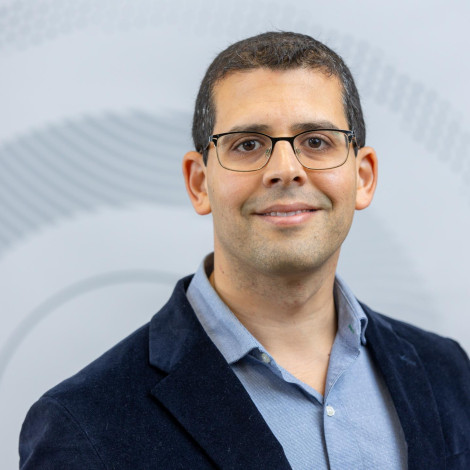
Dr. Elmalech Avshalom
CV
EDUCATION:
2016 - 2017 Postdoctoral Fellow:
Center for Research on Computation and Society, Harvard.
2012 - 2016 Ph.D:
Computer science, Bar Ilan University, Ramat Gan, Israel.
Dissertation title – Overcoming People's Irrationality Using Agents.
Doctoral Supervisor- Prof. David Sarne.
2011 - 2012 M.Sc:
Computer science, Bar Ilan University, Ramat Gan, Israel.
Thesis title – Opportunity Restructuring in Search Based Settings With Bounded Rational Agents.
Thesis Supervisor- Prof. David Sarne
2006 - 2010 B.S.c:
Computer science, Bar Ilan University, Ramat Gan, Israel. Major – Computer science
Research
Crowdsourcing
My interest in crowdsourcing is primarily focused on finding ways to motivate people to do quality work for their employer and ways to automatically monitor the quality of their work. My work in this field has two different dimensions. First, I am working to identify the kinds of tasks in which human labor is more beneficial than machine labor. Second, I am working to create efficient algorithms to motivate people and mechanisms to compensate people.
Recommendation systems
I am interested in finding innovative methods for collaborative agents to better assist people facing complex decision situations. In particular, I am fascinated by the cognitive biases of people and the way these can be used for pushing them to better decisions, e.g., through intelligently restructuring the decision situation presented to them or selectively disclosing the information available to them. Recently, I proposed a new paradigm for automated advice provisioning agents, one in which the agent should not necessarily provide what it believes to be the utility-maximizing advice, but rather, it should suggest sub-optimal advice that is more likely to be adopted. In other words, by considering and modeling the likelihood that the advised subject will adopt the advice given and/or the way she will be affected by the advice given, the effectiveness of the advice given can be substantially improved. My work presented a paradigm shift in what advice these agents should provide people.
Agents and people
I am interested in intelligent user interfaces, both for adversarial and cooperative settings. Much of my work in this area deals with developing methods for selective information disclosure to be used by autonomous agents when interacting with people in order to influence them. Agents and platforms can use these methods to improve the benefits of people or agents using their services, to attract more customers, and to benefit from their users' overconsumption of their services.
Agent-based simulations
My interest in agent-based simulations mainly focuses on finding ways to reliably represent and model people and bounded rational agents acting on behalf of people. One turn-key technology I am especially interested in is PDAs. A PDA is a peer-designed agent—a computer agent developed by regular programmers, not decision-making experts. In recent research, I have managed to demonstrate the effectiveness of this technology in generating a variety of realistic strategies and behaviors, as well as how it can be used to alleviate the simulation and behavior analysis of systems populated by human individuals with diverse strategies.
Courses
86701 - introduction to programing.
86901 - Advanced programing.
88701 - Machine learning.
past courses:
86164 - Introduction to Computing
600008 - Algorithmic Development in Java (The College of Management Academic Studies)
89110 - Introduction to Computer Science.
83222 - Algorithms 1.
83120 - Introduction to Computing.
89231 - Operating Systems.
Publications
Journal Papers
Avshalom Elmalech, David Sarne and Noa Agmon, Agent Development as a Strategy Shaper. Autonomous Agents and Multi-Agent Systems, 1-20, 2016
Avshalom Elmalech, David Sarne and Barbara Grosz, Problem Restructuring for Better Decision Making, Journal of Autonomous Agents and Multi-Agent Systems, 29(1): 1-39, 2015
Avshalom Elmalech and David Sarne, Evaluating the applicability of peer-designed agents for mechanism evaluation. Web Intelligence and Agent Systems 12(2): 171-191 2014
Papers in Refereed Conferences
Avshalom Elmalech, Barbara J. Grosz, "But you Promised": Methods to Improve Crowd Engagement In Non-Ground Truth Tasks", in Proceedings of HCOMP 2017
Avshalom Elmalech, David Sarne, Esther David, Chen Hajaj:
Enhancing Crowdworkers' Vigilance. IJCAI 2017: 4826-4830
Avshalom Elmalech, David Sarne, Esther David, Chen Hajaj:
Extending Workers’ Attention Span Through Dummy Events, HCOMP 2016 (Best paper finalist)
Avshalom Elmalech, David Sarne, Avi Rosenfeld and Eden Shalom Erez, When Suboptimal Rules, in Proceedings of AAAI 2015, pp. 1313-1319
Avshalom Elmalech, David Sarne and Noa Agmon, Can Agent Development Affect Developer's Strategy?, in Proceedings of AAAI 2014, pp. 923-929
Chen Hajaj, Noam Hazon, David Sarne and Avshalom Elmalech, Search More, Disclose Less, In AAAI-2013, pp. 401-408
Avshalom Elmalech and David Sarne, Evaluating the Applicability of Peer-Designed Agents in Mechanisms Evaluation. In Proceedings of IAT-2012, pp. 374-381
David Sarne, Avshalom Elmalech, Barbara J. Grosz and Moti Geva: Less Is More: Restructuring Decisions to Improve Agent Search, in Proceedings of AAMAS 2011, pp. 431-438
Short and Position Papers
Avshalom Elmalech, David Sarne, Noa Agmon, Peer designed agents: just reflect or also affect? AAMAS 2014 pp. 1429-1430
Mai Ben Adar, Nadav Sofy, Avshalom Elmalech. Gahboninho: Strategy for Balancing Pressure and Compromise in Automated Negotiation. Complex Automated Negotiations 2013 pp. 205-208
Last Updated Date : 19/01/2025



